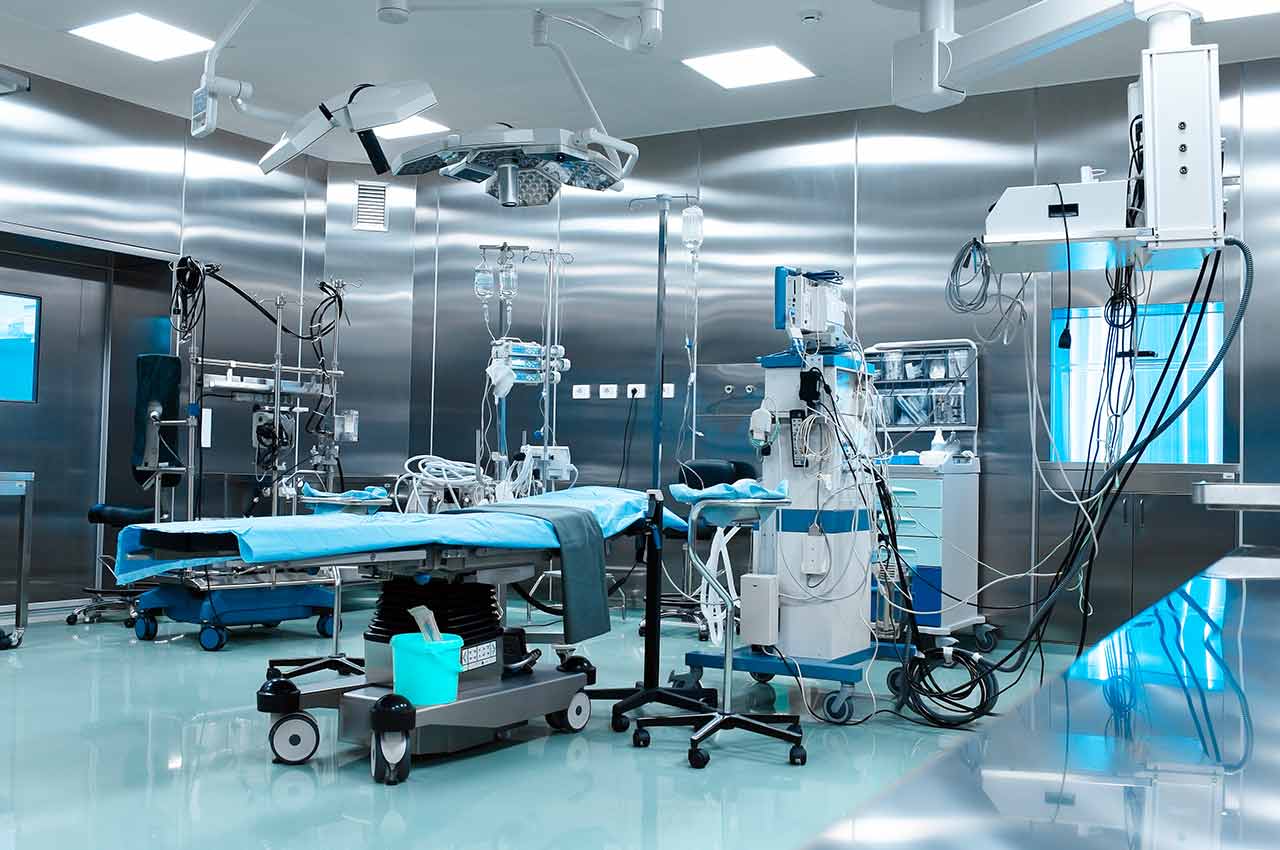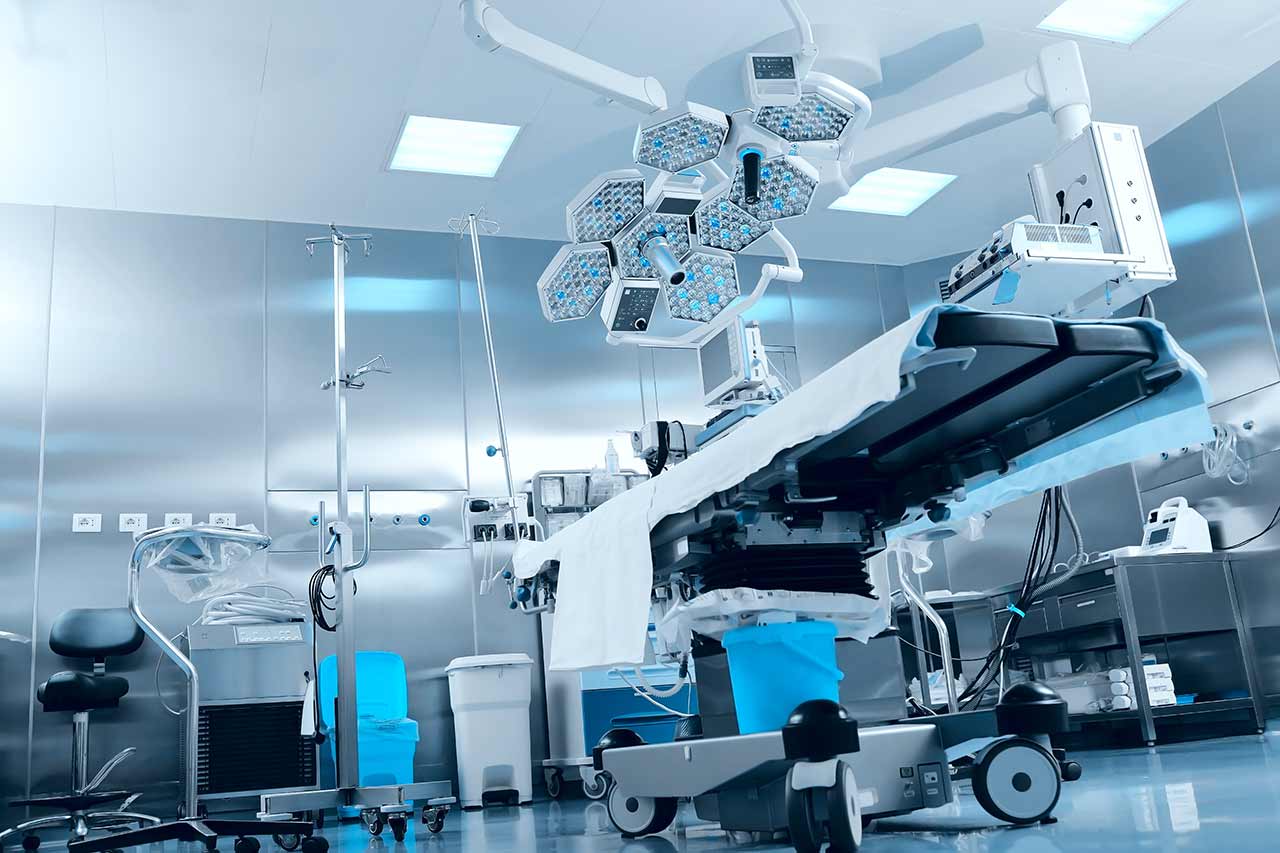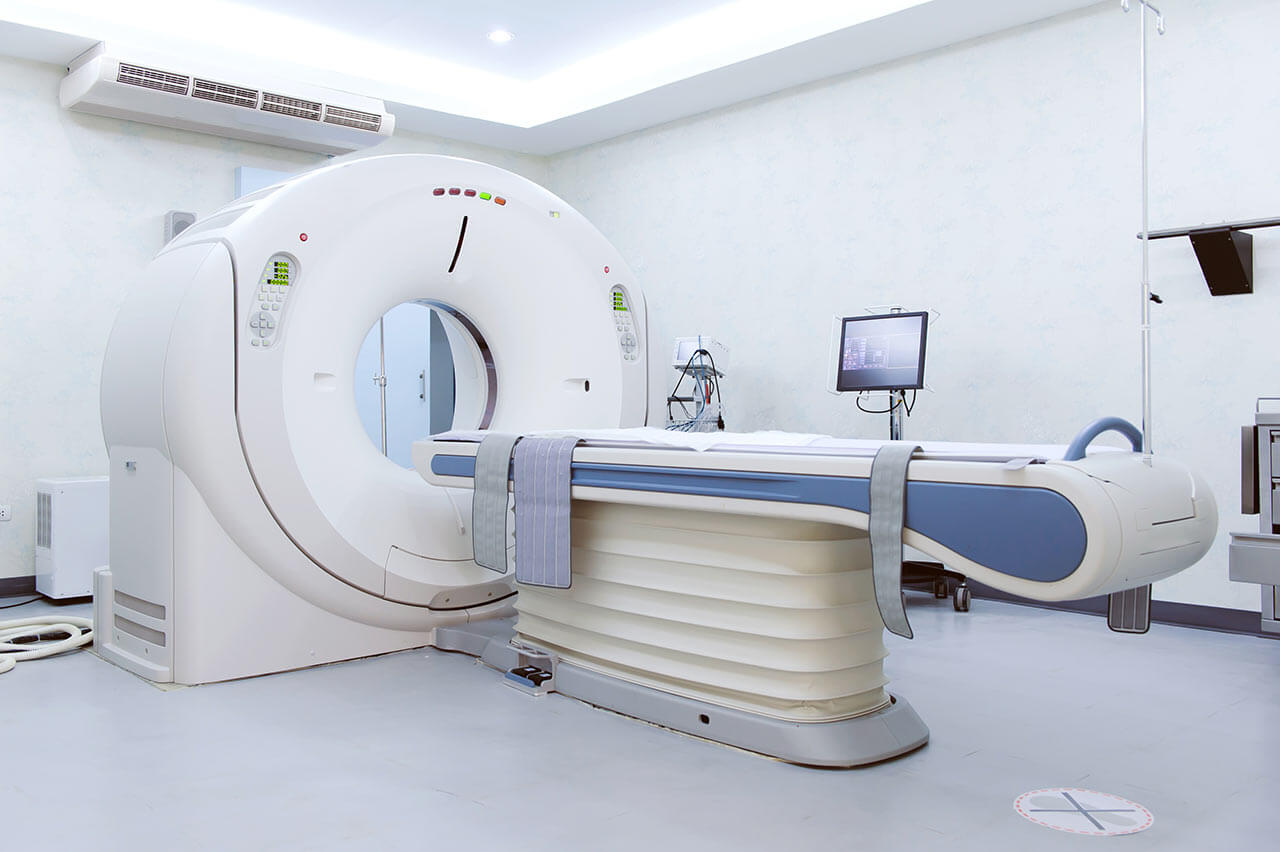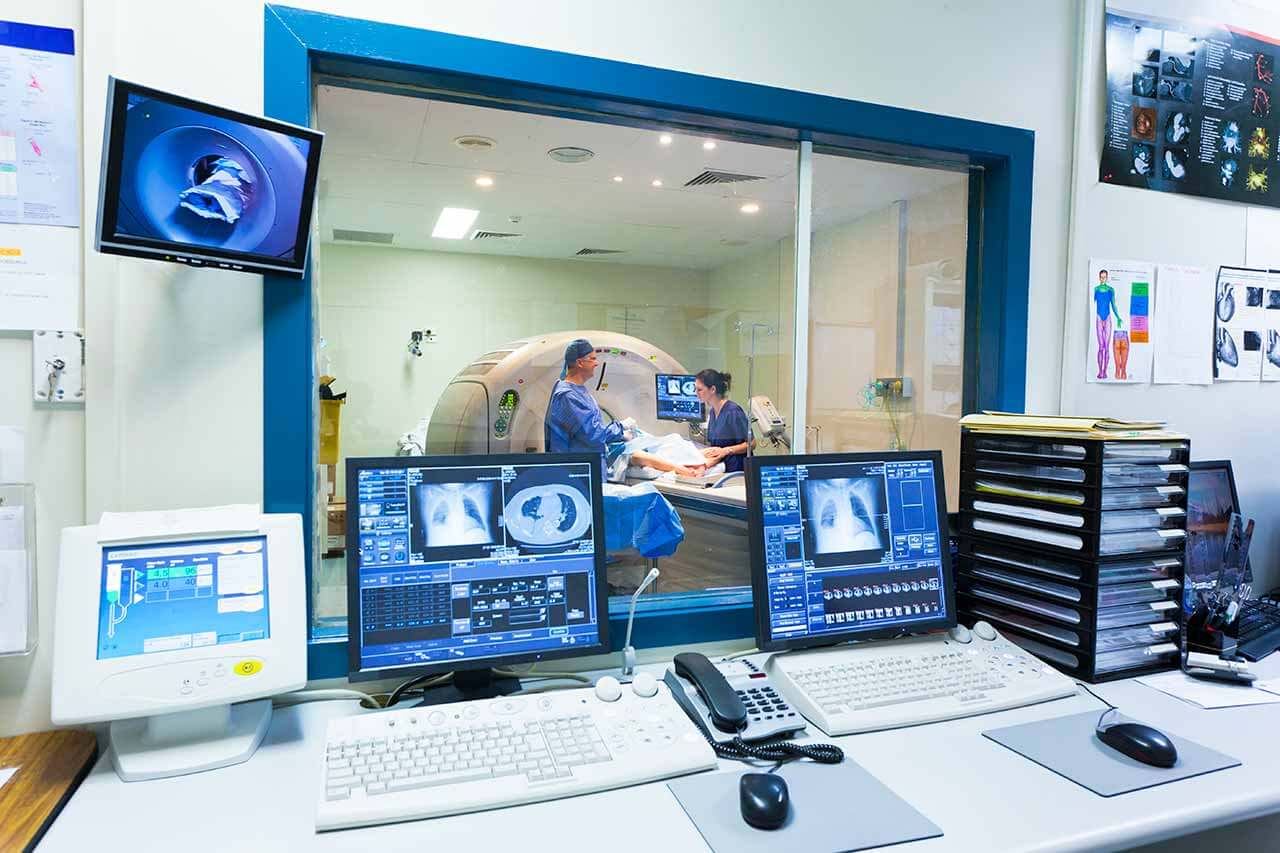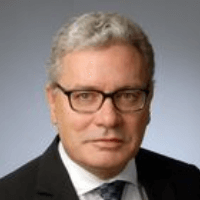
The program includes:
- Initial presentation in the clinic
- clinical history taking
- physical examination
- laboratory tests:
- complete blood count
- biochemical analysis of blood
- Lipid metabolism (HDL/LDL, cholesterol,
triglycerides Lip(a), homocysteine) - blood coagulation analysis (aPTT, PT, INR)
- inflammation indicators (CRP, ESR)
- metabolic status (uric acid, total glucose, HbA1c)
- cardiovascular disease risk markers
- kidney function test (creatinine, urea)
- TSH
- doppler/ duplex receptacles of lower extremities
- angio-MRI from aorta and of lower extremities
- duplex peripheral arteries
- preoperative care
- necrotomy followed by transplantation of skin
- daily wound care
- blood transfusions (if needed)
- symptomatic treatment
- control examinations
- the cost of essential medicines and materials
- nursing services
- full hospital accommodation
- developing of further guidance
Required documents
- Medical records
- Doppler ultrasound/duplex scanning (if available)
- Angiogram (if available)
Service
You may also book:
 BookingHealth Price from:
BookingHealth Price from:
About the department
The Department of Vascular and Endovascular Surgery at the University Hospital Frankfurt am Main offers the full range of services in these medical fields. The department positions itself as a supraregional medical facility specializing in the planned and emergency treatment of all diseases of the vascular system (with the exception of the pathology of the coronary arteries and vessels located near the heart). The therapeutic options cover both open surgery and advanced interventional catheter techniques (alone or in combination with classical surgery). Modern conservative treatments are also available here. The department is headed by Prof. Dr. med. Thomas Schmitz-Rixen.
The department performs more than 2,000 surgical interventions on vessels annually. In addition, it admits about 4,000 outpatients every year. Of particular interest is the endovascular treatment of abdominal and thoracic aortic aneurysms. The experienced experts of the department also provide specialized consultations on arteriovenous malformations and complex diseases of the lymphatic vessels and venous pathologies.
In addition to standard and common treatment methods, the department offers unique types of therapy. For example, in 2016, as part of an international research, a completely new endovascular procedure for dialysis access formation was introduced into clinical practice. The first promising results of its application are already received.
It is worth noting that great importance is attached to interdisciplinary cooperation with specialists from the related fields (for example, experts in the field of diagnostic and interventional radiology, angiology, cardiology, nephrology). Thus, the department has everything necessary to guarantee each patient the comprehensive and most effective treatment.
The service range of the department includes:
- Diagnostics
- Ultrasound diagnostics (Doppler and duplex ultrasonography) of arteries and veins
- Special 3D sonography and speckle tracking
- Contrast-enhanced ultrasound (CEUS)
- Doppler systolic blood pressure and treadmill testing
- Angiography (digital subtraction angiography, CO2 angiography)
- Phlebography
- MR angiography
- CT angiography
- Capillary microscopy (in collaboration with the Department of Angiology)
- Treatment of simple and complex aneurysms of the thoracic and abdominal aorta (within the specialized certified center)
- Open and endovascular surgery of aneurysms of various localization
- Complicated procedures with the implantation of multiple fenestrated stent grafts
- Combined open and endovascular interventions (hybrid surgery)
- Open surgical, endovascular and conservative treatment of peripheral vascular diseases
- Open and endovascular surgery of the supra-aortic vascular branches (blood vessels of the brain, carotid artery, subclavian artery)
- Open and endovascular surgery of the abdominal arteries
- Open and endovascular surgery of the peripheral arterial system (scleroplasty, bypass surgery, percutaneous transluminal angioplasty)
- Intravenous infusion therapy, local intra-arterial thrombolysis
- Treatment of all types of vascular lesions, including emergency medical care (as part of the Supraregional Trauma Center)
- Plastic and reconstructive interventions
- Surgery for vascular malformations of all localizations
- Free transposition of bones and soft tissues for the reconstruction after operations to treat head and neck cancers
- Dialysis access formation
- Bypass surgery: formation of an open vascular access in all localizations using endogenous vessels and prosthetic material
- Minimally invasive endovascular formation of a vascular access (as part of a clinical trial)
- Placement of dialysis catheters for temporary dialysis
- Diagnostics and therapy of venous diseases
- Conservative and surgical treatment of venous thrombosis in the pelvic and inferior vena cava area
- Treatment of chronic venous insufficiency
- Correction of vascular malformations
- Other diagnostic and therapeutic services
Curriculum vitae
- Study of Medicine and Clinical Training in General, Thoracic and Vascular Surgery in Cologne.
- 1983 Doctoral dissertation, Faculty of Medicine, University of Cologne.
- 1985 - 1987 Fellow and House Officer, Surgery, Massachusetts General Hospital (Harvard Medical School), Boston, USA.
- 1988 - 1994 Gerhard Hess Scholarship of the German research Foundation, subject: "Biologic reconstructions in vascular surgery".
- 1987 - 1991 Junior Consultant for Surgery, Department of Surgery, University Hospital Cologne.
- 1992 - 1998 Senior Consultant for Surgery and Vascular Surgery, Department of Surgery, University Hospital Cologne.
- 1988 - 1998 Director of the Vascular Research Lab, Department of Surgery, University Hospital Cologne.
- 1997 - 1998 Consultant for Palliative Surgery in the Dr. Mildred Scheel House in Cologne.
Work at the University Hospital Frankfurt am Main (since 1998)
- Since 1998 Professor for Vascular Surgery and Head of the Department of Vascular and Endovascular at the University Hospital Frankfurt am Main.
- Since 2002 Research Fellow at the Max Planck Institute for Heart and Lung Research, Bad Nauheim.
- Since 2000 Member of the Ethics Committee.
- 2002 - 2012 Faculty Research Committee.
- Since 2013 Member of the Medical Faculty Council.
- 2010 - 2014 Member of a Multidisciplinary Research Board (LOEWE-program).
Work in the Medical Association of Hesse
- Board Member for Medical Quality Assurance in hesse.
- Vise-Chairman of the Hospital Advisory Board.
- Member of the CME Board.
Work in the Editorial Boards
- Gefässchirurgie.
- Der Chirurg.
- Langenbecks Archive of Surgery.
- Zentralblatt für Chirurgie,.
- International Journal of Vascular Medicine.
- BioMed Research International.
- Journal of Vascular Medicine and Surgery.
- Annals of Vascular Surgery.
Memberships in Professional Societies
- German Society for Vascular Surgery and Vascular Medicine.
- German Society of Surgery.
- European Society of Vascular Surgery.
- Association of International Vascular Surgeons.
- Honorary member of the Society of Vascular Surgery of Great Britain and Ireland.
- American Society of Vascular Surgery.
- Association of Interdisciplinary Specialists in Vascular Surgery of Southern Germany (VIGS).
- Vascular Society West (GG West).
- European Society for Surgical Research.
- International Society for Applied Cardiovascular Biology (ISACB).
Photo of the doctor: (c) Universitätsklinikum Frankfurt
About hospital
According to the reputable Focus magazine, the University Hospital Frankfurt am Main ranks among the top German medical facilities!
The hospital was founded in 1914 and today is a well-known German medical facility, which combines rich traditions and scientific innovations. A medical team of more than 6,500 employees cares about the health of patients around the clock, ensuring them with the highest standards of medical care and best possible safety.
The hospital has 32 specialized departments and more than 20 research institutes, which have all the necessary resources for the provision of the most effective care for any patient. The hospital has 1,488 beds for inpatient medical care. The medical facility diagnoses and treats more than 51,000 inpatients and about 44,800 outpatients every year. Due to the demonstration of outstanding treatment results, the number of patients seeking medical care here increases significantly annually.
The hospital presents all areas of modern medicine, whereas its special competence lies in neuroscience, oncology, cardiovascular medicine, cardiac surgery and other fields. Many treatment methods available here are unique not only in Europe, but also internationally.
Photo: (c) depositphotos
Accommodation in hospital
Patients rooms
The patients of the University Hospital Frankfurt am Main live in comfortable rooms made in modern design and meeting the highest standards of European medicine. Each room is equipped with an ensuite bathroom with a toilet and a shower. The standard room includes a comfortable, automatically adjustable bed, a bedside table, a wardrobe, a table and chairs for receiving visitors and a TV. If desired, patients can use Wi-Fi. The patients can also stay in the enhanced-comfort rooms.
Meals and Menus
The patient and his accompanying person have a daily choice of three menus. If for any reason you do not eat all the food, you will be offered an individual menu. Please inform the medical staff about your dietary preferences prior to the treatment.
Further details
Standard rooms include:
Religion
Religious services are available upon request.
Accompanying person
During the inpatient program, an accompanying person may stay with you in a patient room or in a hotel of your choice.
Hotel
During the outpatient program, you may stay in a hotel of your choice. Managers will help you choose the most suitable options.
